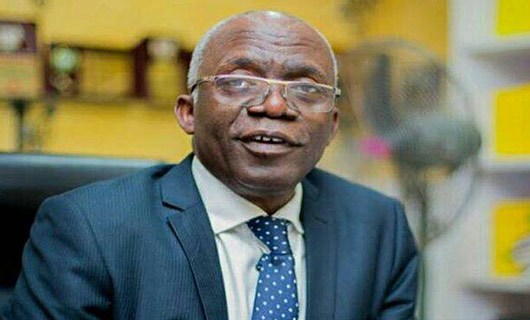Human rights lawyer, Femi Falana SAN has accused corrupt politicians of fuelling religious intolerance in the country as a cover-up for their corrupt deeds.
According to him, the political elite is busy spreading falsehood about religion in order to deflect attention from their corrupt practices.
He stated this in an address at the 5th UFUK Dialogue International Conference on Love and Tolerance held in Lagos on Saturday.
The theme of the Conference is “Countering Violent Extremism for Peaceful Co-existence”.
UFUK Dialogue is a Non-Governmental Organisation (NGO) founded to promote dialogue, culture of co-existence and mutual understanding.
The NGO also has the mandate to establish a common platform aimed at information and opinion exchange.
It also focuses on dialogue and peace activities in academic and intellectual levels among different members of the society.
Falana said that some corrupt political office holders were the ones pitching the citizens against themselves as a cover-up to their corrupt practices so as to get an alibi.
“There is evidence that corrupt political office holders are the ones fueling religious intolerance in the country just to cover up for their sins against humanity.
“The political leaders are not sincere with stopping all these vices because that is a way to distract the people from their corrupt cases while the people are battling, engaging themselves.
“As a person, people often ask me why I am standing in for a Muslim and the answer they get is that I don’t know anyone.
Read Also: Beg govt officials, not private citizens – Emir Sanusi tells beggars
“I am defending all the oppressed irrespective of religious affiliation. However our own leaders are busy spreading falsehoods about religion,” he noted.
Falana said that the two main religions in Nigeria have things in common, hence there should not be division for peaceful co-existence.
“There are many things the two religions have in common, one is that they believe that there is one God above all, they both fast and other similarities.
“There is no need not to live peacefully among ourselves if we believe in one supreme God. We should love ourselves because God is love, this is important for us to know.
“I have been in the position to advise some rich people to invest in education and establishment of industries because that is the way to go to get our youths engaged,” Falana said.
The president of UFUK Dialogue Foundation and the convener of the conference, Mr. Kamil Kemanci in his presentation titled “Interreligious Dialogue: If not; what else?” said that peace remained a necessity.
“UFUK dialogue serves to stand by societal peace, love, tolerance, and compassion in support of human dignity and the greater good of humanity.
“Dialogue and peace has always been and still remains a need, a necessity, and a must for us to have a healthy and more productive society.
“The work for peace needs a dimension that goes beyond any ideology, political system, above any religious movements or religious authority.
“The most important factor in the creation and promotion of sustainable peace is the realisation of good governance while promoting justice through increased transparency, accountability, and the rule of law and strengthening of democracy.
“As sustainable development goal number 16 promotes, without peace, stability, human rights and effective governance, based on the rule of law we cannot hope for sustainable development in a world that is increasingly divided,” he said.
Kemanci said that violence worldwide was on the rise and becoming increasingly complex and multidimensional, adding that almost half the world’s people had been affected by political violence in recent years.
“Contrary to, especially all this so-called religion-based hostility, I believe that religions and cultures have strong messages that can contribute to the solutions to these problems because religions and cultures are certainly a source of peace and well-being.
“Religious and cultural leaders have a special responsibility to join hands with fellow Nigerians to save our world from the scourge of terrorism and violent extremism.
“Religious and cultural leaders can start a strong effective collaboration of state authorities, religious leaders, and civil society actors to organise community-wide efforts to address all factors that aid violent extremism.
“Violence and terrorist recruitment within communities must be fought and countered by working with local communities to set up the necessary framework for identifying at-risk youth,” he said.
Mr. Andy Nkemneme who represented the Director-General of Institute for Peace and Conflict Resolution, (IPCR), Abuja, Dr. Bakut Bakut said that structural deficit was responsible for extremism.
“Structural deficit is responsible for religious extremism in Nigeria because people desire to get justice which they are being denied.
“If we are talking about peace, we are talking about justice and if people cannot get justice they will complain.
“When there is poverty, people will be aggrieved and will take up arms at slightest provocation against one another looking for justice.
“Our security outfit alone cannot stop violence, and that is the reason we have agencies such as IPCR to deal with the soft issues such as creating enlightenment for the public,” he said.
Panelists at the conference include Prof. Olalekan Sumi-Amidu, Dr. Saheed Timeyin, Prof. Lai Olurode, Prof. Alexander Bamigbola, Dr. Scott Alexander, Dr. Folashade Toyin-Kehinde among others.



Leave a Reply